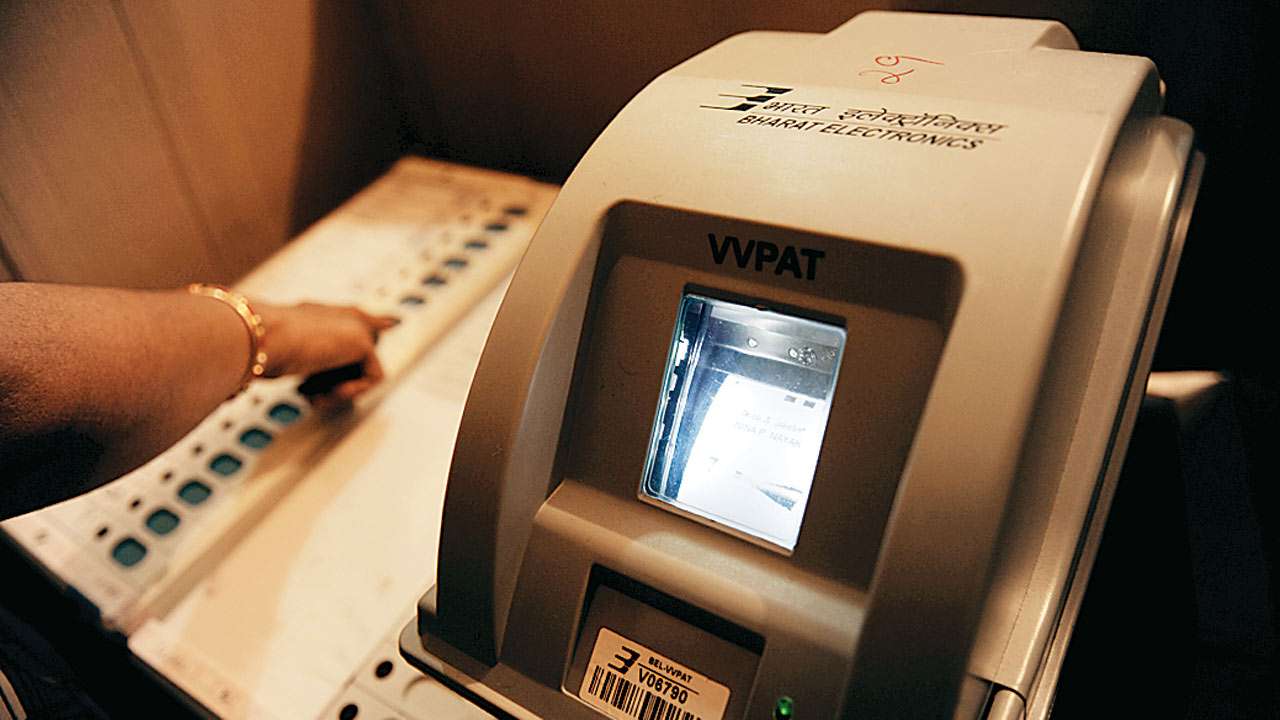
The results of this year's general elections may get delayed by a few hours as the Supreme Court on Monday directed the Election Commission to verify votes generated from five electronic voting machines (EVMs) per assembly constituency/segment on a random basis instead of picking just one machine in each seat.
The panel had cited infrastructural and logistical issues in changing the present arrangement of verifying votes polled in one polling station of each assembly seat or assembly segment in case of Parliament seat. But a bench headed by Chief Justice Ranjan Gogoi felt that such a step would help build voter confidence and credibility of the electoral process. It said in no way did its directions doubt the electoral process in vogue.
The order came on a petition filed by 21 Opposition parties led by Telugu Desam Party (TDP) chief N Chandrababu Naidu who claimed to represent the voice of over 70 per cent of the electorate.
The bench, which also had Justices Deepak Gupta and Sanjiv Khanna, was satisfied that the verification of EVMs being done by EC was part of its internal audit and so far no error was reported.
Yet, the court was of the view that this rule, specified in Guideline 16.6 of the Manual on EVM and VVPAT, must extend to more machines.
Although the petitioners represented by senior advocates Abhishek Manu Singhvi and Kapil Sibal had demanded counting of 50 per cent VVPAT slips generated from 10.35 lakh polling stations (an average of one EVM per polling station), the EC rejected the proposal claiming such an arrangement would delay the results by 5.2 days.
Moreover, at such short notice it was impossible to train officials and get dedicated space to manually count the slips, where possibility of human error cannot be ruled out, the EC said.
It even cited a study by the Indian Statistical Institute showing that a sample verification of 479 EVMs meets 99 per cent satisfaction. Under the present practice, EC verifies 4,125 EVM/VVPATs, which is 8.6 times more than what the report suggested.
The bench decided to increase the present figure of 4,125 to 20,625 EVM/VVPAT, which is less than even one per cent.
The court said, "If the number of machines which are subjected to verification of paper trail can be increased to a reasonable number, it would lead to greater satisfaction amongst not only the political parties but the entire electorate of the Country."
The average time to count VVPAT slips from one polling station in each constituency is one hour and subsequent to the court order, the declaration of final tally could get delayed by few hours.
Deputy Election Commissioner Sudeep Jain, who was present in court to assist the judges, brought dummy VVPAT slips to show the difficulty faced in counting them.
He showed pictures of the VVPAT counting booth, which needs to be overseen by a Returning Officer, a team of three EC officials and an observer. The random picking of five polling stations will be done by draw of lots in the presence of polling agents of candidates.